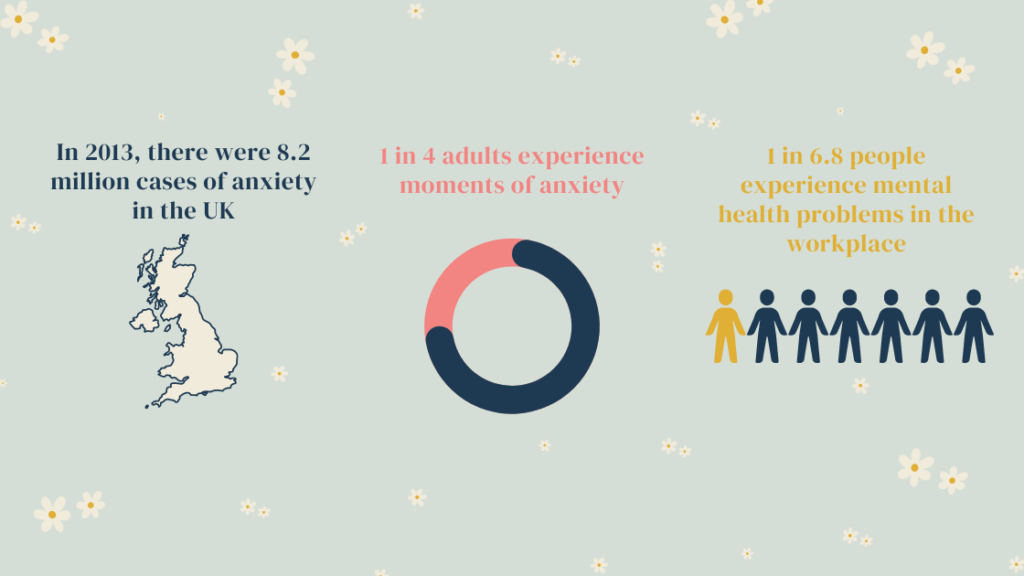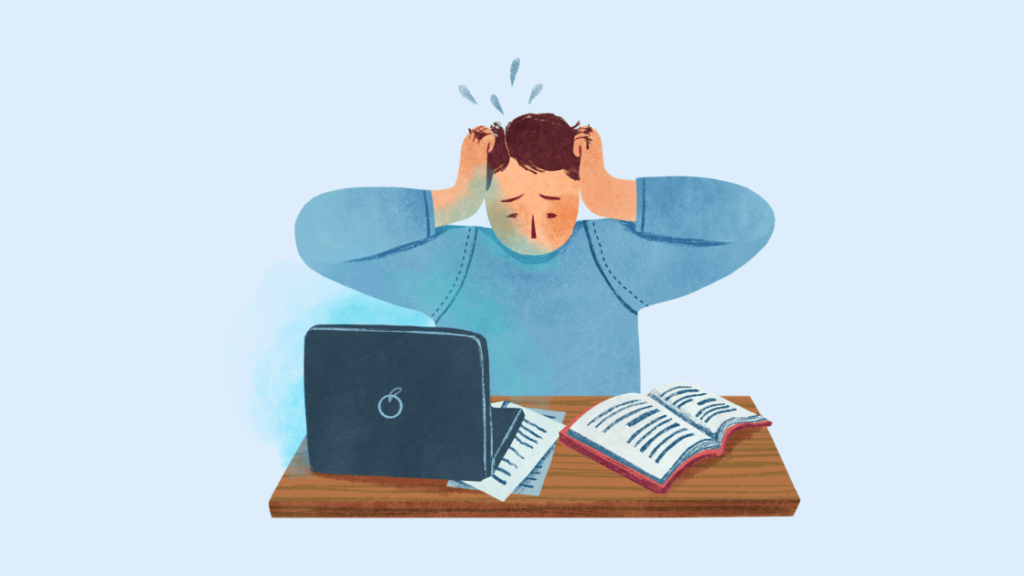May 15th marks the start of Mental Health Awareness Week in the UK. It is an opportunity for the whole of the UK to focus on achieving good mental health. This year the official theme is anxiety.
Although anxiety is an entirely normal emotion, it sometimes has the tendency to become out of control. In fact, in a recent mental health survey carried out by Mental Health UK, it was found that a quarter of adults experienced moments where they felt so anxious that they were unable to do the things that they desired.
Many things can cause anxiety and these of course can be different for each individual. However, a common cause of anxiety can be your work and the workplace.
Work Anxiety
1 in 6.8 people experience mental health problems in the workplace. Although this statistic doesn’t solely reflect those suffering from anxiety, we can safely assume that anxiety sufferers comprise a large proportion of this figure given its status as the most common mental health illnesses. Work Anxiety manifests itself in a variety of forms and can be caused by a variety of situations. For example it may be triggered by starting a new job or meeting deadlines. It might also be triggered by experiencing an overly high workload or feeling as though you’re lacking direction. Every individual is different but psychologists have noted some common consequences that can arise from the condition. For example:
- It may lead to you developing problems with concentration, experiencing fatigue and irritability, as well as reduced productivity
- Confidence in skills can also be lowered
- It could increase your likelihood to turn down opportunities
- Job satisfaction may be reduced
- You may feel like what you do doesn’t make a difference
- You could experience reduced goal setting
- You might feel isolated
Not only do these challenges hinder the quality of life of the individual suffering from anxiety, they also can affect the business around them. After all, if one team member is unhappy and unable to produce the quality and quantity of work required, others will likely feel the consequences as well.

How to Reduce Work Anxiety
As an employer, it’s important to create an environment in which anxiety inducing situations are minimized wherever possible. Of course, it is impossible to prevent people from experiencing any form of anxiety, but by creating the right environment you might just be taking the first step to helping someone who is suffering.
Below, we have outlined some top tips to help you be there for your employees:
Check in with your team.
The simple act of listening goes a long way to resolving feelings of anxiety felt by employees. It’s a good idea therefore to regularly reach out to your team members and ask them how they’re doing. It doesn’t have to be a formal meeting (and in fact, it might be better if it isn’t) and it doesn’t have to be any more than a couple of minutes, but by providing a friendly face and engaging in a bit of small talk, you’re decreasing the likelihood of your employee feeling isolated. Maybe if you develop a strong relationship, they’ll even open up to you about any anxiety. In that case, you can use these quick chats to check in on this as well.
Train supervisors to recognise the symptoms of work anxiety.
By training staff members to recognise the symptoms of anxiety you’ll create an environment in which everyone looks after one another. As anxiety can often prevent people from asking for help, you’ll also be able to reach out to those who are perhaps too afraid to ask for help. As well as creating a communicative culture, it also creates a welcoming environment where all employees will feel confident to express their thoughts and ideas.

Conduct regular performance meetings concerning work anxiety.
On a more official note, it may be a good idea to conduct regular performance reviews. During these, you can address issues stemming from anxiety relating to work performance. With it, employees can understand what they’re doing well and see how they contribute to the success of the business. If they feel valued and praised for their good work, they are less likely to believe any negative voices in their head telling them they’re not doing a good job. These meetings can also help to identify where concerns lay and work on putting together a strategy to ascertain how to address them.
Offer support if needed.
Sometimes, an employee’s anxiety might mean that they’re unable to work. In this situation, it’s important to consider allowing flexible working options. This is actually an obligation by law in the UK, but it’s also proven to increase productivity in employees.
Effectively manage workload to decrease work anxiety.
A primary cause of anxiety is an unrealistic workload being placed on an individual’s shoulders. Consequently, by ensuing workloads are manageable and reasonable, you’re eradicating any stress caused by extreme pressures. Furthermore, in addition to managing anxiety, this can sometimes help to increase productivity which is always a bonus!!

These are just a few basic points that may help reduce anxiety in the workplace. Everyone is unique and not everyone will find the same approach helpful however. The important thing therefore is to ensure an open line of communication in which people are able to approach you with their needs. And when they do approach you, it’s important to be flexible and be willing to take actions to help your employees. At the end of the day, they’re the stars that keep your company shining, they deserve to know they’re safe and appreciated ⭐
Interested in reading more about mental health in the workplace? Why not check out some of our blogs from last years mental health blog series?
15 May 2023 09:44
